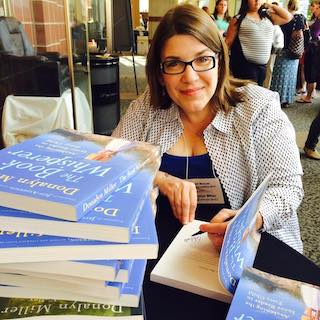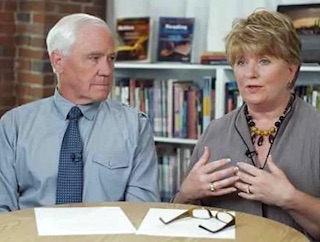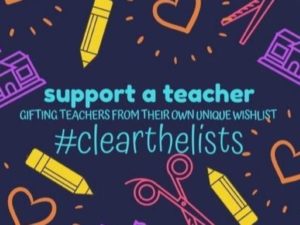Why I’ve Stopped Using Teachers Pay Teachers

Then October rolls in and that “calming down” thing just isn’t true. October has its own busy and so do November, December and every other month. Teaching is a wild ride – always.
I’m seeing a lot of conversations on social media about the weight of teaching. The feeling many have in October, the October Slump. Many use the phrase “just holding my head above water” or “treading water” — this whole idea that we are just about to drown.
The tasks build up, the work piles on, time and resources are scarce. It seems like we may soon be overwhelmed with the flood of responsibilities that come with teaching.
I get it. I live it. And yet…
Does the End Justify the Means?
Earlier this week at the gym I sat down to catch up on one of my preferred podcasts. I had not heard of the latest guest, but part of the description centered on teacher resources and “equity in sharing.” That caught my eye, so I turned it on and hit the treadmill.
Much to my dismay the podcast took a turn that caused me to pause for a minute. The speaker was what some refer to as an Edu-CEO – an individual who has left the classroom to form a business with the goal of supporting teachers. This particular guest was singing the praises of the Teachers Pay Teachers education marketplace.
Having listened to this podcast series before, and knowing that many of the past guests had been victims of the copyright infringement practices that Teachers Pay Teachers seems to miss so often in the products they profit from, I was anticipating that the host would have a pointed question or two for this TPT champion. But the challenge did not come.
As the podcast continued, topics like how to promote your store, dealing with the “echo chamber” of negativity, and how Teachers Pay Teachers is a tool for equity (I pulled an eye muscle on this one) were addressed. As a recovering TPT seller I know how rampant the abuse of intellectual property rights is on the platform, so I was shocked at this clear bias for the promotion of resource creation using the intellectual work of others without permission.
As a simple sample of what I mean, I’ve just searched “The 40 Book Challenge” on Teachers Pay Teachers. This is an idea, for those who are unaware, that Donalyn Miller introduced in her fantastic book The Book Whisperer. The search returned over 1000 hits selling various graphic organizers and other creations, all sporting the 40 Book Challenge name. They often cite Donalyn herself as the creator (one even called her “Carolyn” Miller).
In attempt to combat the rampant copyright violations on websites such as Teachers Pay Teachers, Heinemann Publishing has updated its copyright language. I hope other educational material publishers follow their lead. https://t.co/CTTRNIAcdH
— Donalyn Miller (@donalynbooks) December 16, 2018
Using Donalyn’s name is one of two things – a misguided attempt to give credit, somehow thinking it absolves them of any wrong regarding copyright infringement – or an attempt to get more eyes on their product by having her name in the description. Either way the practice is disheartening.
Don’t even get me started on the use and abuse on TPT of Notice and Note, a collection of works by Heinemann authors Kylene Beers and Robert E. Probst. These two creators have asked that people not take their ideas and sell them on Teachers Pay Teachers. But a quick search there produces 7000+ hits.
Why are these sellers willing to ignore intellectual property rights? One TPT-participating teacher told me, “I don’t care what they say, I should get paid for my work!” The hypocrisy of this statement was both staggering and hilarious to me. In that moment I realized what I was dealing with.
Sharing Our Work Is Good
The concept of teachers paying teachers is not all bad. The argument that teachers need ways to share resources and maybe even profit off the work they are CREATING themselves is credible, even valuable.

Donalyn Miller – Source
The concern I have is that educators are looking to Teachers Pay Teachers and the somewhat affordable products offered there without giving much consideration to who created the original work – whether someone else’s genius made it possible for these TPT sellers to create packets, handouts and super cute worksheets. And what it means when we fail to support the authors and thought leaders who have put in the time – in the classroom and at the writing desk – to figure out and share what works.
The point is often raised in this discussion that teachers need support, they need resources, and there not enough time to make everything they need. I agree, and never more than this year. I am stretched pretty thin myself, and I myself am tempted at times. I have in the past hit up Teachers Pay Teachers for some quick ideas so I can just get something started tomorrow. What I have not done is kid myself that this is best for my students or my practice.
The Heinemann Blog post about copyright language revisions, mentioned in Donalyn Miller’s tweet above, specifically mentions Teachers Pay Teachers as a cause for concern. This passage is highlighted in the post:
Heinemann’s authors have devoted their entire careers to developing the unique content in their works, and their written expression is protected by copyright law. We respectfully ask that you do not adapt, reuse, or copy anything on third-party (whether for-profit or not-for-profit) lesson sharing websites. (An Update to Our Copyright Language, Heinemann Blog, 12/10/18)
My outlook on this: If I buy Notice and Note, if I read it, if I use the materials that come with the book (inside the covers or online) – which are shared by the authors with me for the price of the book – and if I then take their ideas and templates and adapt them for my needs in my classes, this is appropriate use, part of my “license” which I gained by buying and absorbing their work.
If I develop some of my own original materials, inspired by my study of Beers and Probst in the most general sense, and offer them online, that may be okay, too. But the minute I connect their titles, special language, books and materials to my items for sale – I’m very likely infringing on their intellectual property. If so, then I’m taking unfair advantage of the large investment they and their publishers have made to create, publish and promote what they have created.

Robert Probst & Kylene Beers developed the Notice and Note learning strategies.
I understand that costs of professional resources can be high. But these texts provide a long term learning tool. If a school division or school presents us with funds to improve our classroom and pedagogy, our first moves should not be to type in Teachers Pay Teachers to build a curriculum. We should be building professional libraries. We should be creating a strong foundation of instruction that does not rely on clip art, fancy fonts and chevron borders to catch our students attention.
While Teachers Pay Teachers is affordable and yes, you can probably get all the handouts you need there for around the same cost as a few professional teaching resources, which is going to provide the better long term educational growth for both you and your students?
The Question of Equity
I have spent the week pondering how to address the claims that Teachers Pay Teachers is an equity tool, that it evens the playing field and provides resources to those who have less access due to geographic isolation or fewer financial resources.
While I can see that these issues are significant, I would suggest there are better ways to gain access than to buy what some might say is stolen property. In this day and age we have connections to amazing educators at our finger tips. I live in rural Alberta, Canada. The excuse of isolation only goes as far as our connection to the internet.

The idea of a school division or district giving teachers money for resources, and instead of investing in the learning of teachers we invest in workbooks and worksheets, saddens me. As I was discussing this concept on Twitter, a friend said in a moment of desperation they turned to TPT because they were teaching a new course and just felt like they were drowning.

My Greatest Concerns
Ultimately, my primary concern with the products on Teachers Pay Teachers revolves around the legalities of copyright infringement and the morality of teachers repackaging the ideas of others by throwing some shiny clip art on the authors’ work and claiming it as their own. What is the message we are sending? What is the example we are showing?
Beyond that, I think the appeal of quick and easy handouts and half-understood tools will distract too many teachers from our true purpose. Notice and Note again provides a good example. Having some handouts with those words on them that we can show to the principal is a whole lot different than really understanding at a deep level what Beers and Probst are trying to help us accomplish with our kids – and really learning to use their strategies.
Teach and learn. That’s our true purpose. Teach and learn.
EDITOR’S NOTE: Readers may be interested in this story that appeared at Education Week in July 2020: Teachers Pay Teachers Has a New Anti-Racist Initiative. But There’s Still Racist Content on the Site.
AND this EdSurge article from February 2021:
What Teachers Pay Teachers Is Learning From Bad Lessons and Upset Teachers – More than two-thirds of teachers are estimated to have used Teachers Pay Teachers to access lessons and other resources. Yet, a review of materials on the site by The Thomas B. Fordham Institute found many may not be “worth using,” and the company appears to be reacting to some concerns, including a need for more anti-racist and culturally responsive materials. (Summary from Accomplished Teacher SmartBrief)




































Great article. I always created my own worksheets. I can draw anything and kids like that. Also, in time, I knew what I wanted them to learn, so I figured out how to get there. Sometimes it didn’t work so well, and I’d make changes. Creating stuff for kids that helped them learn was what made teaching fun. It’s all good in the rearview as I’m newly retired.
I would also point out that in addition to blatent copyright violations, many schools, if not most, employ teachers on a work-for-hire basis. That means that anything you create during school hours or for your students technically belongs to the district. Teachers have already been paid for that work. It’s called your salary.
I am not arguing that teacher salaries are anywhere near commensurate with the amount of work we put into our jobs, but in most cases I would bet that not only are teachers getting paid twice for the same work, but they probably don’t have the right to sell that work in the first place. If someone is an edu-ceo, that’s a different story, but I think those people are the exception on TPT, not the rule.
Thank you MScheid for pointing out what very few teachers are aware of. If something is created for and used in your classroom it is considered work product and yes the district owns it. When I consulted for National Geographic all work has to be original for their purpose.
Correct, National Geographic would want to publish original work and maintain intellectual rights for that content. Regarding something a teacher creates, are you able to share the policy you are referencing that describes work product as district-owned?
I have not heard of the type of policy you describe. I have worked in multiple school districts. Would you be able to reference or share the policy you are familiar with as an example?
While i don’t necessarily disagree – anything I have time to create for my class (and I’m not a TPT seller or any other type of seller) i have absolutely done on my own time as much of my prep and planning is. In my teaching career, i hardly have time to do much of anything during my contractual hours, and most of educators i know are also doing quite a bit of work on unpaid time.
Good points. I had begun to notice this problem with some of the images in science materials I have gotten from TPT. Rather than using images with a clear creative commons license or amateurish but acceptable photography, like I honestly expected, I have found images that seem like they were pulled from a Google Image search or textbook materials.
To be fair some sellers are better about not infringing than others. I have found a couple I like to use for this reason (also their materials tend to be easily adaptable for my wants). The sellers on TPT seem like the content creators on YouTube. Some understand copyright law and some don’t have a clue. For both TPT and YouTube for that matter you just have to be careful how you use them.
Jonathan’s YouTube mention brings up another question worthy of comment and discussion here. What responsibility do these “marketplace” internet platforms have to discourage copyright/intellectual property infringements? Is it entirely up to the seller/uploader?
Just as a hypothetical… Suppose someone started another educator marketplace and called it “Teachers PayING Teachers.” Would TPT feel that their intellectual property had been infringed upon? Or would that just be an opportunity for more “equity” that they would welcome?
In a super connected world, without strict regulation, is “doing the right thing” mostly up to individuals and companies who care about such things?
These are great questions.
While the author and commenters are entitled to their negative opinions of TpT, I would like to point out another viewpoint as a TpT teacher-author. As an online marketplace, TpT hosts the platform for TpT stores but does not own the resources posted on it. Consequently, each seller is responsible for behaving ethically regarding the resources they sell there. Unfortunately, many teachers do not understand that what they created to use in their classroom with their students is not necessarily allowed as a product they can sell. TpT also has a page listing the copyright policies of many companies to aid its teacher-authors. Whenever copyright infringement is reported to TpT, they will take the resource down and investigate the claim. It is up to the person whose copyright or trademark has been violated to inform TpT.
As for a school district owning everything a teacher creates during work time, that is true for many districts but not all. However, there are many sellers who have their district’s permission to sell resources on TpT. Lots of TpT sellers create their resources on their own time using their own computers at home.
I think is is unfair to categorically condemn all of TpT and to advise educators to avoid it completely just because some resources violate copyright or trademark. I think most teacher-authors are ethical and create original works that do not piggyback off the success of well-known authors. As for using photographs found online, there are many sources of public domain photographs that are free of copyright restrictions; I use them all the time for my resources.
Yes, there are former educators who do TpT as a full-time job but but there are many more TpT sellers who are just trying to earn a little extra money to supplement their meager salaries. Creating top quality resources is difficult and it is incumbent upon each buyer to ensure that what they purchase follows copyright and trademark law. If you find something you feel violates that, you can report it to TpT and they will investigate.
TpT provides a service to educators. If you don’t want to use it, that’s fine. But some teachers find it’s a life-saver and depend on it to help make their jobs doable. There are far more resources that do adhere to copyright and trademark laws and sellers who do the right thing then there are unethical ones. My point is: Don’t throw the baby out with the bath water just because there are some bad apples on TpT!
My long held concern is reflected in your final paragraph. Too many teachers have products with no understanding of the process (skills and concepts).
What a broad brush to paint all resources in one marketplace. The marketplace is not a single entitiy. The vast number of resources are original. Whatever small percentage of resources infringe copyright, those that do not are available for the benefit of teachers, created in good faith, with high integrity and quality. Since the creators of creation of quality resources created in good faith have no affiliation with those who infringe and such a blanket condemnation is inaccurate.
Laura, My largest concern comes from the fact that Teachers Pay Teachers does not do more to check ownership of resources and quality of the resources. I think it is a reach to claim that the majority are of high quality. I am not condemning those who create their own original high-quality work. If anything I am condemning the poor vetting of all the products and the notion that TPT is working for teachers and students’ best interests. This would also be false.
I want teachers to share and help each other grow. I want teachers getting paid for their work. I also want to make sure the work that teachers are buying and bringing to kids is worthy of them. I don’t feel these are unfair critiques.
I agree – I’ve been teaching mathematics for over 35 years, and I have to say, there are a lot of math resources that are just plain junk! They masquerade as being “in-depth,” and developing “conceptual understanding,” but for the most part, they cannot transcend the fact that the teachers who create them put much more effort into making them look “cute,” rather than “comprehensive.”
Some people worry too much. Besides, your workload is determined by how much you require. Too much grading to do? Then assign shorter and fewer assignments. I find evaluating the first 100 words of a 250-word assignment is not enhanced by asking for 500 or 1000 words.
It is unfortunate that the author of this article is spouting negative opinions about TPT. I am a teacher author. I adhere to all copyright laws. I have a master degree in curriculum and instruction and several endorsements in my specialty. In addition, I have 33 years of teaching experience. I am offering resources that are high quality.
Do teachers need to assess products better? Yes. Does TPT need to vet products for quality? Yes! But to just say this is wrong and bad is an overstatement.This is new and different and part of the GIG economy that is our current world. Why shouldn’t a teacher author who has quality resources that don’t infringe on anyone’s rights make a little money on the side?
Author here. I find it unfortunate that you chose a term like “spouting” when I raised a genuine concern about the rampant abuse of copyright on Teachers Pay Teachers. I even make the concession that original work can be fine BUT the issue is — as you agree above — the vetting.
I just purchased a teacher’s work through her Paypal. From a link on her own website. Supporting only the teacher. I don’t understand the need to defend a multimillion-dollar company from accusations that you yourself say are accurate. My point was totally focused on the quality of SOME products and the violation of copyright. Both you agree with. Let’s look for alternatives.
While that is true that this teacher would get 100% of the profit minus the Paypal fees and all the other app fees, website fees, etc., it really ignores the fact that it takes a great deal of money and time to develop a complete commercial website along with the marketing needed for it to be found! Yeah, lots of busy teachers have that kind of money and time! What an ignorant statement! Those teacher websites that you are promoting are only there because that person was successful on TpT first, most likely left the classroom, and was able to expand out onto their own. They didn’t just step out of the classroom in the evening able to do that!
I am promoting investing in a teachers work through their PayPal page instead of through Teachers Pay Teachers. I appreciate that by mentioning the commercialization and “teacher time” argument that you are further making my point. I could literally put up a PayPal account on my free website and advertise a product then email it out once paid for. The middleman of TPT is not needed. Perhaps it isn’t I who is ignorant about how this works.
I am one of those teachers that found the time and have started my own marketplace website for teachers to share resources. I have a “report now” button where people can report a resource and am in the process of working with a company to include an automated vetting process that occurs during upload. I take copyright seriously. I also want to make sure that everyone has access to the site.
Just some food for thought on copyright law:
https://www.copyright.gov/circs/circ31.pdf
Great article! Intellectual property problems are more prevalent today than ever, with fixes and lack of accountability largely absent.
One issue I had with TPT was the products are often not aligned to specific grade, state and local subject standards. As a Curriculum Coordinator, I would cringe in teacher planning sessions that went something like this: “We are teaching media literacy this week. I found the cutest Power Point with worksheets on TPT. “ The Power Point was for 6th grade, not 3rd. The district curriculum had several resources to teach media lit in a way that aligned with best practice, actual standards, and district philosophies/initiatives. Plus, teachers didn’t collectively take the time to truly understand what meeting that standard looked like, much less evaluate the materials accordingly. I get it. They are busy. But, TPT seemed like the easy way out instead of growing your practices.
This is my concern as well, Debbie. Teachers might assume a resource is appropriately aligned with standards and curriculum acquisition policies, but it may not be. We risk watering down the curriculum when there isn’t an internal process in place for accurately analyzing the quality of the resource. We shouldn’t rely on outside judgment on this.
Excellent article. Thank you for posting it. Mimi Stephens, The Choices Program
You would need to get traffic to your free website and that would take marketing money and time. Paypal charges a fee and you will have to have some way to prove that you followed through as a seller in order to be protected under Paypal’s seller requirements. You would have to know and abide by all tax laws (income and sales tax in 50 states and EU laws in selling internationally) which also takes time and money. You can’t just put up a product on a website and ask for money through Paypal and expect 100% profits. It doesn’t work that way. TpT provides the payment processing (just as Paypal does) and they handle all the collecting and remitting of sales tax for all states that require it. Their 20% fee for this is less than you would be paying on your own by selling through your own site. And none of this would ensure copyright/trademark compliance. You can just as easily sell violations on your own site as you can TpT. What you can do as a buyer to control this is to only purchase from sellers who have the utmost integrity and follow all the laws. The majority of TpT sellers are this way. I agree there are some bad apples on TpT, but there are just as many selling on their own personal sites as well.
Thanks for this very good food for thought, Brent. I wrote a post recently called “From the Supreme Court to the Icky Test: Reflections on Teachers Sharing (and Selling) Ideas” because I was so bothered by this very issue. Here’s a link to my post on copyright violation in the world language teaching profession.
I had bought products from teachers I know and respect only to find they included shockingly blatant theft of intellectual property – complete song lyrics with a few cloze activities, page after page of infographics lifted from newspaper websites, and so on.
I do sell on TPT and buy there as well, but I think deeply about what I’m doing. My most lucrative products there are reading guides to authentic Spanish novels, and so I do use the novel’s name and the author’s name, but I don’t quote extensively from the novel at all, and my product actually boosts sales for the author and publisher because it cannot be used without reading the novel, so I consider it a mutually beneficial endeavor in that case.
It seems you would disagree with this sort of product, or others I have seen that are, for example, a student’s guide to a movie in another language (which teachers are usually showing using their personal Netflix account, also a violation of terms, but that’s another can of worms)…?
Thank you for writing this. Lots of food for thought!
My concern is the cost of some of the materials – whatever happened to teachers just sharing?
I am reading this after 9 months of covid19 and wondering if more comes into play regarding TpT at this time. I am not a school teacher. I have been training adults for 6 years and post resources for principals, staff and admins. My store is small but I try to post quality work that will help during the pandemic.
People are facing new challenges and I believe any relief is a help. I have family and friends who are school teachers and some days wouldn’t have anything for their class if this resource wasn’t available.
I also believe it is on the end user to do their due diligence before buying and report those selling illegal items. Yes, that takes time, but everyone would benefit in the long run by weeding out the bad apples.
Jessie –
Thank you for these comments. We agree – the COVID-19 pandemic has made the TPT platform an important resource as teachers scramble to do all they’ve been asked to do in hybrid, F2F and virtual settings. Brent’s concerns, which many readers agreed with, were expressed in October 2019 – a world away from now.
That said, his core contention –– and the contention of many others, including authors and publishers –– is that respect for copyright and intellectual property is also important… and maybe more so in a time when education authors and the education publishing industry are also struggling to keep afloat.
Yes, buyers should practice due diligence. But the owners of TPT, who are reaping significant profits, do have a role as well. They can do more to publicly state the importance of respecting everyone’s intellectual property rights and also create a truly responsive system for copyright holders to register complaints.
We don’t think anyone would really take the position that it’s entirely up to the individual riding on the subway to make sure no one’s pocket is picked. Due diligence cuts both ways. Using your analogy, the barrel owner should accept some responsibility for removing rotten apples.
John at MiddleWeb
Thanks John, My opinion regarding TPT has not shifted because of the Pandemic. I think people making quality, original work need an avenue to sell it if they choose. I just believe we need a better option than TPT which profits knowingly off the sales of pirated and also racist products. 👍
This statement is prominently displayed on my TpT storefront: “Tell me and I forget, teach me and I may remember, involve me and I learn.” (Twenty-five products will remain inactive until TpT addresses Black Lives Matter using its website to disseminate Marxist propaganda.) Seek alternative access.
If only we spent as much time critiquing billionaire “district adopted curriculum.” These attitudes say much more about societal lack of respect for educators than copyright infringements. The article wasn’t nuanced enough to assume the writer respects educators or teacher created materials, nor was it specific enough to know what exactly constitutes a copyright infringement.
Publishers and best selling authors can advocate for themselves just fine. Teachers are trying to exchange creative ideas as they try to transform student lives and society for the better. More helpful and productive and less degrading to teachers might be an accurately and better researched guide to copyright laws for teacher authors.
A thoughtful and reasoned article. Valid and valuable thoughts. Thank you.
I started in 2011 as a TP T teacher- author. After two decades of creating curriculum and supplemental materials and sharing, I was excited about this business opportunity. I worked hard– 90 products in my store–every one my own work with purchased fonts and graphics.
That being said, I fully support this article. It concerned me a lot when I saw copyright infringement after copyright infringement. I also heard other authors boast about seeing someone else’s work in TPT and quickly recreating their own version. I know this happened to me more than once. After going to a couple summer conferences in 2014, 2015, the climate of the company turned me off and I quit creating new products. This and the added changes of being bought by IXL, I am ready to close my modest store. I’m sorry for everyone who has done it right.
I don’t use TPT because there are so many typos and grammatical errors. Some teachers rush to upload their products but never fix the errors even after other teachers leave comments about the needed changes. The artwork is too cutesy, the fonts are often difficult for children to read, and the prices are increasing without an increase in quality. The TPT search engine is horrible. When you put in a topic you often get pages of the same author, usually one that has a lot of products. I want to see a variety of authors. Copyright is definitely an issue for many products.
It’s one of the reasons I created thewheeledu.com so that all authors can appear not just the ones TpT promotes. Plus, if I see resources that have errors, I take them down and ask the author to fix them. It’s the right thing to do
While I can empathize with your point of view, it is a definitely a narcissistic and capitalist issue. Why as a society are we not able to share our ideas and thoughts and why do we have to attached ownership to these things? We are but here on earth for a short period, nothing truly belongs to us. Why do we feel the need to profit off others and not simply share for the joy of sharing. Nobody truly owns an idea, as ideas are born from other ideas. Many people in different countries, provinces, states can come up with the same idea without having every spoken (this has been proven time and time again).
So who’s idea is it then? Once we remove ownership from ideas and thoughts (because they are always influenced by our environment) we can then open up to a world of sharing, caring and compassion. We can work together toward a common goal and ensure that students can be successful.
What I don’t like is so many TPT products are poorly written with multiple content, grammatical, and spelling errors. The writers usually get offended when you point these errors out. Not all of the writers ever correct their errors. I agree that there is so much plagiarism. It is ironic that the writers will not allow you to resell or trade their products when they are plagiarizing and reselling the work of others.
Sorry, but no one has the time and resources to buy a book, read it, and then create all of the resources for every subject that we teach for free. No other profession is as disrespected as being a teacher. I’m buying my own paper clips and staples and now I’m expected to create each resource too and build the wheel year after year. Teachers Pay Teachers was free for many years before. How about we go back to that? Enough is enough! The masses have finally taken all of the fun out of teaching for me. I can’t wait to retire from this mess!
I am confused by your argument. First, Teachers Pay Teachers has always had the word “pay” as a prominent feature of its business model, which is that teachers are PAYING other teachers for content that they have created. However, far too many resources on TpT were NOT created by the teachers selling them; they are other people’s work being sold without permission.
Second, you said that no one has the time and resources to buy a book, read it, and then create all of the resources for free but then you said that TpT should be free. Which is it?
Yes, teachers should be able to work with one another to curate, collect, and share resources and yes, those who have created ORIGINAL work should be allowed to sell it (provided they did not do it using school district resources on school district time, in which case they are very likely prohibited by contract from doing that.) However, no teacher has the right to sell someone else’s work, which is often what happens on TpT.
There are, incidentally, many places where teachers can share resources with one another without any cost to the user or the seller. One such example is EducationBlueprint.org.
Another excellent FREE resource is Share My Lesson, supported by AFT.
Here’s why I can’t really use TPT: I work in a district where all of the curriculum I develop has to be uploaded to a shared district drive– I am expected to pass on the curriculum to the next teacher who teaches the course. If I use TPT lessons, then I am violating the terms of sale. TPT lessons are a stopgap, but not a good source for an ongoing curriculum; the next teacher who teaches the course would need to rebuy the lesson from TPT to avoid violating copyright, yes? (And our teacher handbook states that all of the curriculum we develop for our courses belongs to the district– so how does TPT fit in to that?!?)